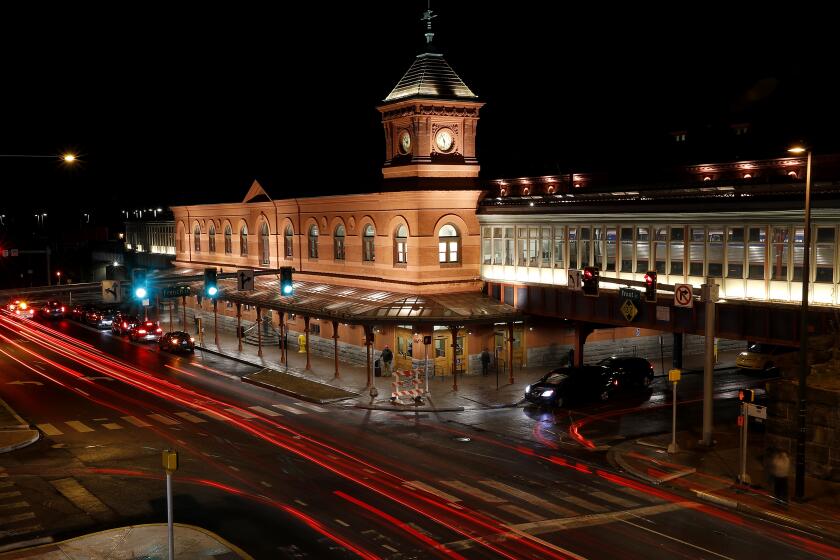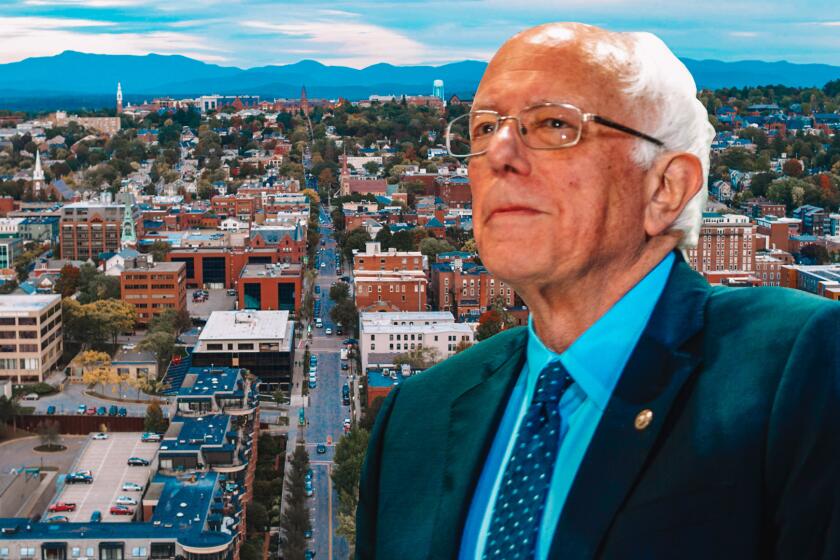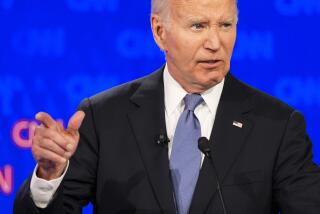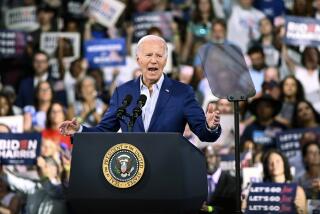In Sunday debate, Biden hopes to wind it down and Sanders to amp it up
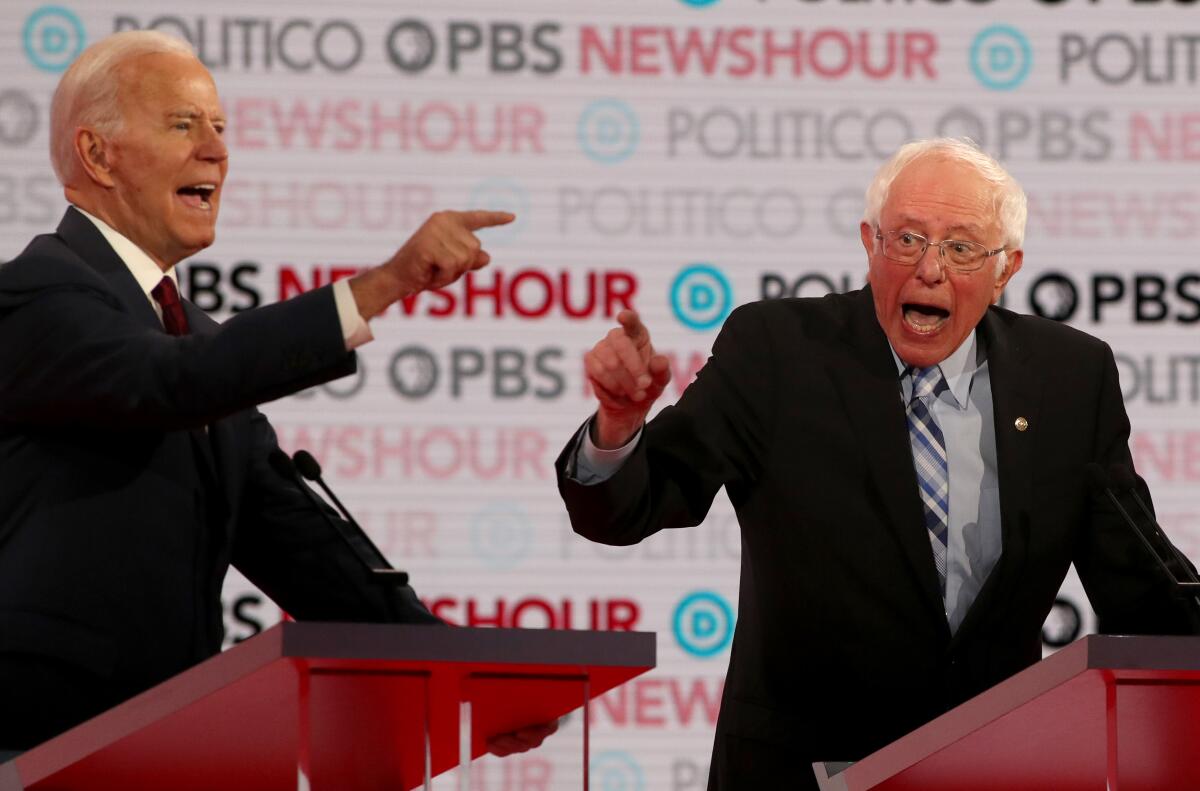
- Share via
Joe Biden and Bernie Sanders enter Sunday night’s presidential debate headed in opposite directions: the former vice president on the rise, eager to unify Democrats and turn his attention to the fall campaign, Vermont’s senator in a downward spiral, grasping to keep the contest alive.
Each faces a distinct challenge as the two assume their side-by-side places on a Washington sound stage.
Biden, who has never been a champion debater, wants to avoid the kind of fumbling performance that could raise questions about his acuity and physical durability as well as his capacity to take on President Trump, should the two meet onstage in the fall.
Sanders, who has promised to draw out their differences, can’t afford to antagonize Democrats who bristle at the sight of fratricidal feuding, which, they fear, only serves to benefit the president. Asked how Sanders can distinguish himself from Biden without appearing overly negative, a campaign strategist answered succinctly.
“Artfully,” said pollster Ben Tulchin.
Joe Biden’s hometown of Wilmington is known for its small size and relationship-based politics. But just as in national politics, backlash has been brewing against the status quo.
Whatever their disagreements, Biden and Sanders are in harmony on one thing: They’re glad it’s just the two of them onstage.
Long ago — actually, it was just last month, when Biden’s campaign appeared on the brink of collapse — he was asked what he could possibly say to voters that they hadn’t already heard during his decades-long political career.
Biden launched into a diatribe against the come-one, come-all debates the party held throughout the summer and fall, which featured as many as a dozen candidates clamoring to squeeze a word in edgewise.
“You call those debates?” he demanded. “I’ve been in debates.”
Sanders, for his part, in a not-quite valedictory speech after another stinging round of defeats Tuesday, welcomed the chance to avoid the candidate clutter and face Biden by himself.
“On Sunday night,” he said, “in the first one-on-one debate of this campaign, the American people will have the opportunity to see which candidate is best positioned” to defeat Trump — something Democrats throughout the country have repeatedly described as their bottom-line priority in choosing a nominee.
Sanders telegraphed some issues he wished to pursue, including healthcare, climate change, student debt, immigration and criminal justice reform. All have been covered in previous debates, so it remains to be seen what, if any, new ground is broken.
Burlington shaped Sanders as Sanders shaped Burlington, so much so that it’s hard to consider one without the other.
Like every other facet of life these days, the debate — hosted by CNN — has been shadowed by concerns over the spreading coronavirus.
Originally, the evening was going to feature a town hall format, with questions from a studio audience in Phoenix.
But with health experts warning against large gatherings, and some jurisdictions banning them outright, the Democratic National Committee announced it was replacing the Arizona event with a session in CNN’s Washington studio. The debate will air from 5 p.m. to 7 p.m. Pacific time.
There will be no audience; just the two candidates fielding questions from a panel of moderators, a format more akin to an extended version of the weekend’s political talk shows than the fiery free-for-alls that previous debates have been.
“Scorched earth is amplified by people in the audience clapping and hooting and hollering,” said Democratic strategist Katie Merrill, who predicted “the entire tone of the debate is going to be much milder and more staid” as a result of its cloistered environment.
That doesn’t preclude Sanders from drawing sharp contrasts with Biden. The question at this stage of the contest, Merrill said, is whether very many Democrats still care.
Times staff writer Melanie Mason contributed to this report.
More to Read
Get the L.A. Times Politics newsletter
Deeply reported insights into legislation, politics and policy from Sacramento, Washington and beyond. In your inbox three times per week.
You may occasionally receive promotional content from the Los Angeles Times.

